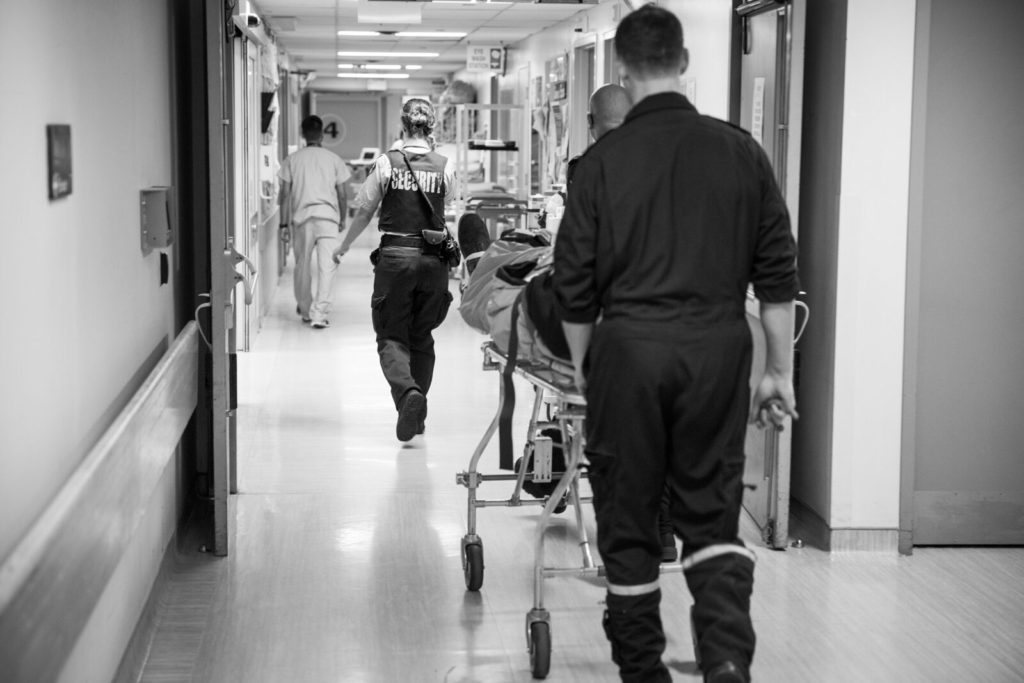
Screening for substance use in trauma patients
Almost 40 per cent of trauma cases that come to our hospital involve alcohol, drugs or both. A group of seasoned nurses on our trauma team who are passionate about helping people with substance use issues decided to tackle the problem. They wanted to prevent as many people as possible from being readmitted to the hospital as a result of substance use.
The team created a program to identify substance use issues in patients, so they can get help if they want it. The screening starts with a two simple questions:
- do you drink alcohol?
- do you use illegal drugs?
They take an informal approach because they don’t want to intimidate people.
“Just when you’re assessing the patient, a patient just might admit something, or you may have a moment where you could bring up the subject,” says nurse, Dawn Gordon. “Some people may be eager to get help, and others may just ignore the questions, but we’re always pursuing it so maybe near their discharge they may just think twice about the questions, and may still consider help.”
If the patient is receptive, they can speak with specialists who help guide their recovery plan. The approach emphasizes collaboration, instead of simply telling the patient what they’re doing wrong. Once a patient speaks with a social worker or substance use specialist in the hospital, they decide how they want to be helped, be it through meetings or even in-patient recovery facilities.
The social worker can help connect them with OHIP funded Alcohol, Drugs and Gambling Services in their community to help them reduce or stop their substance use. The program started with a small group of nurses but has been rolled out to the entire trauma nursing team. Although it is difficult to track a patient’s goals and progress once they leave our care in the trauma unit, the team considers it a success when a patient is not readmitted to the hospital.
Lisa Ironside says a positive spin-off of the project is that it has prompted their team to rethink how they look at trauma.
“We always saw trauma as injury. We had to look at trauma as a bigger picture, like traumatic experiences and how people cope.”
